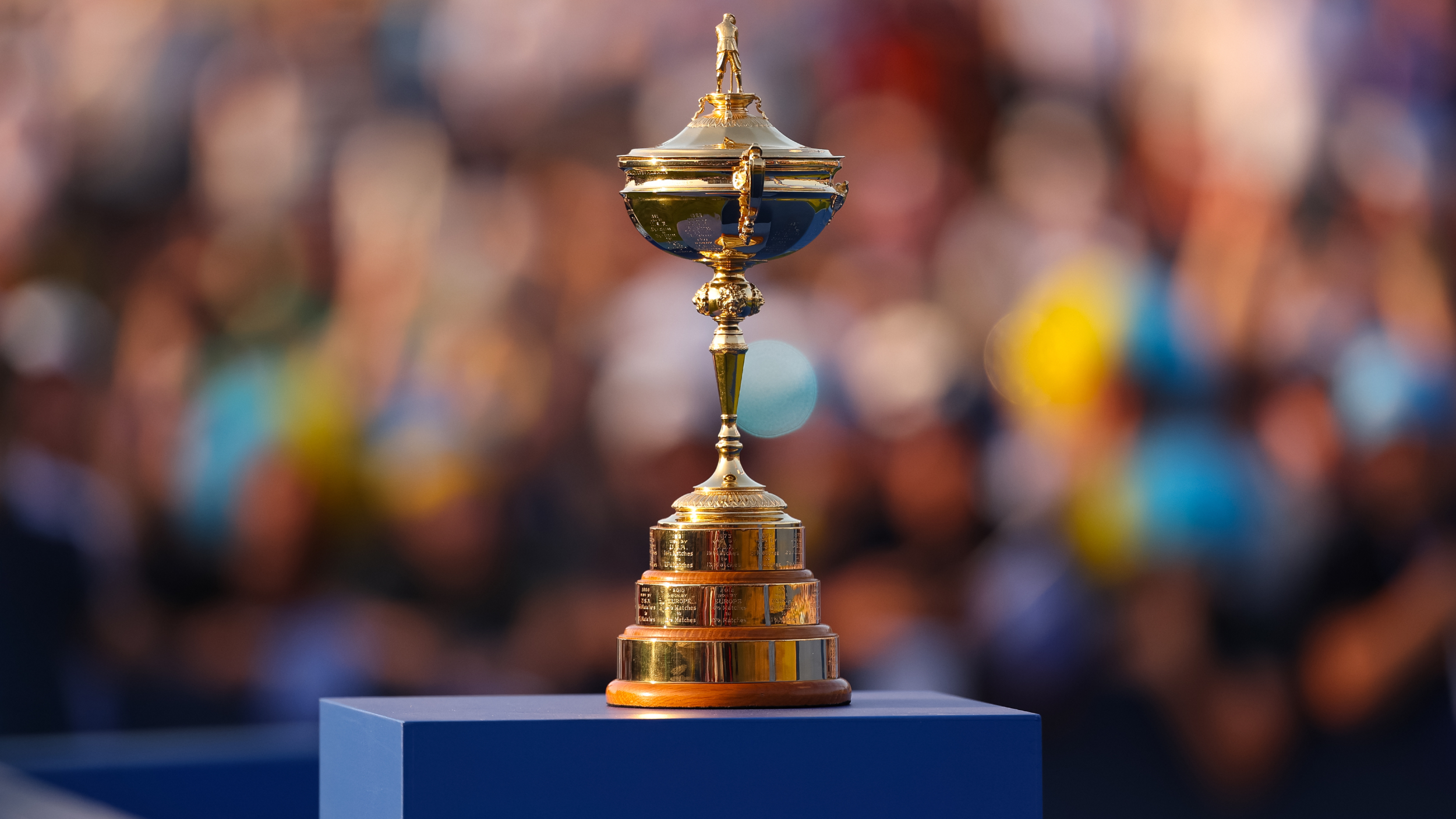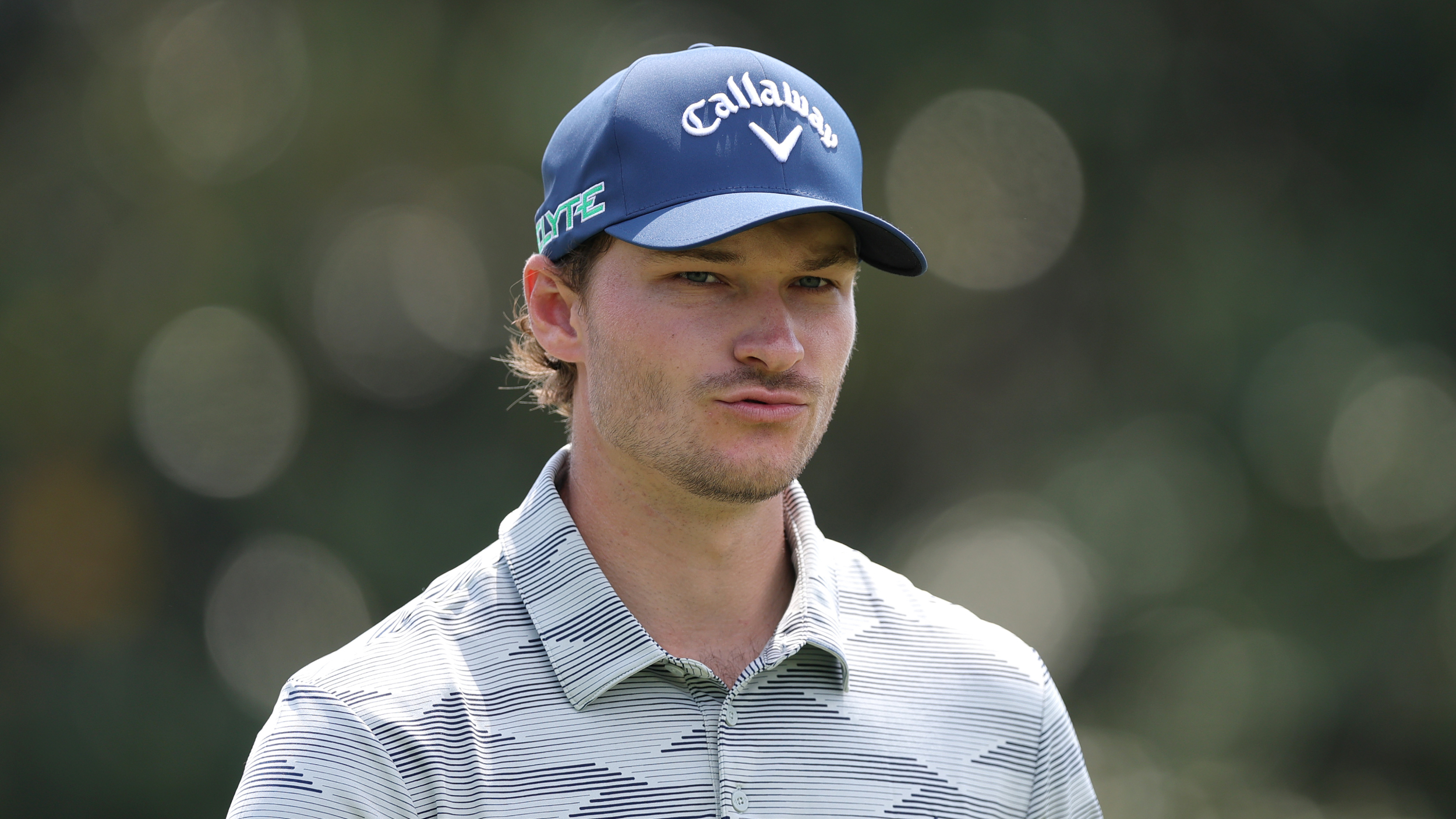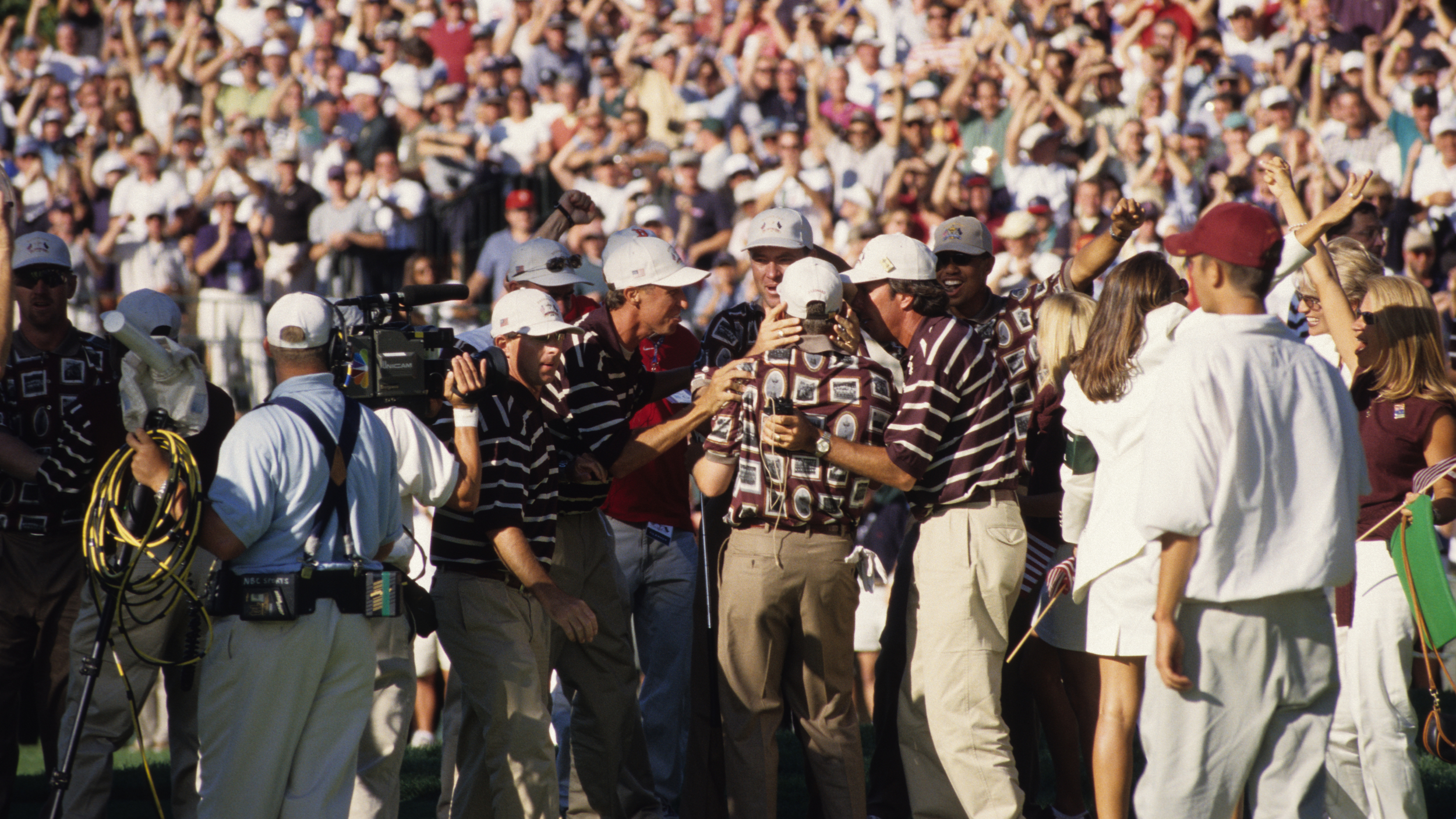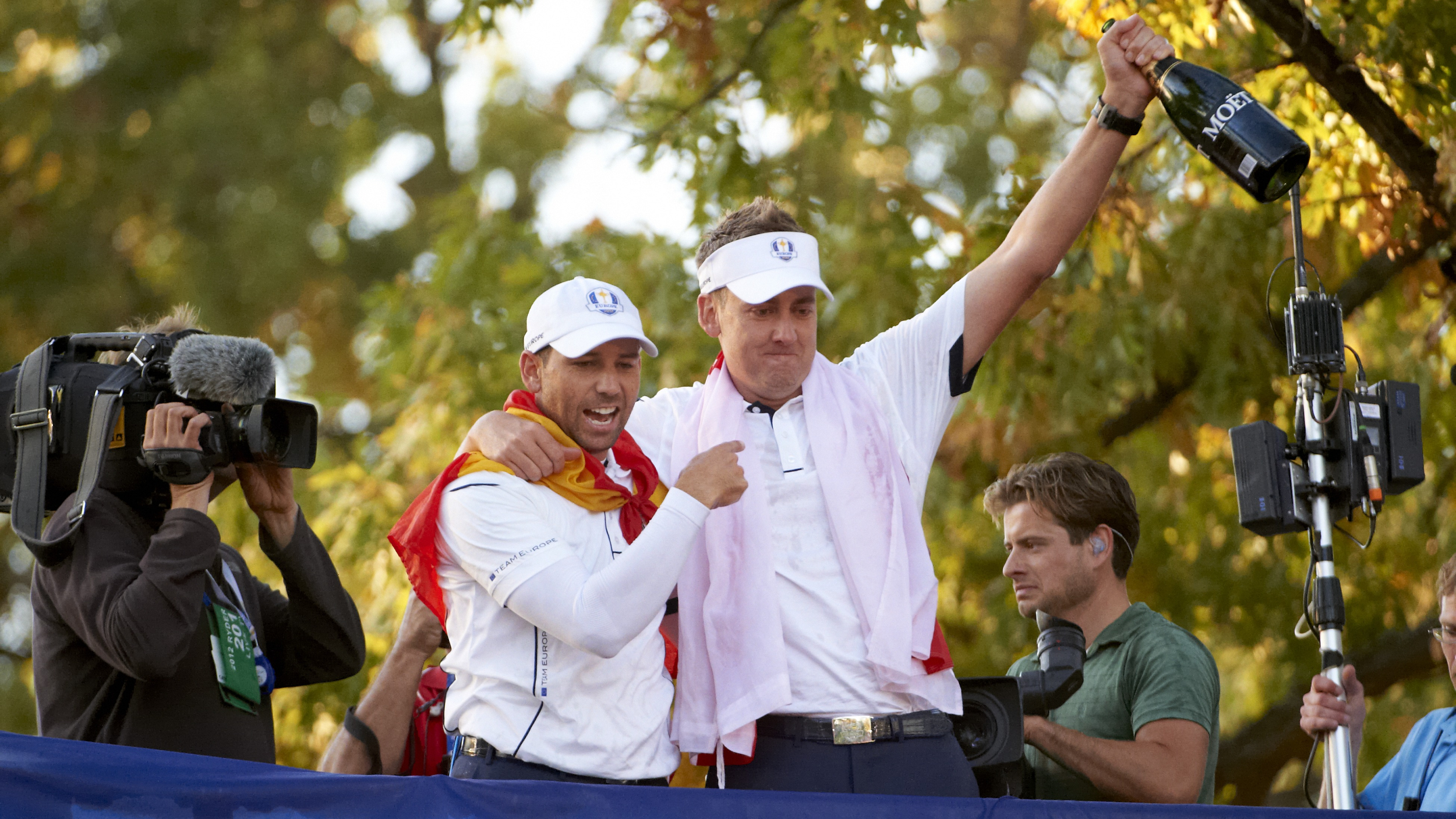The Incredible Ryder Cup Rookie Stat That Suggests Europe Can't Be Beaten At Bethpage
Luke Donald is taking just one rookie in his European Ryder Cup side to Bethpage - and history says that is the recipe for success in the event


Subscribe to the Golf Monthly newsletter to stay up to date with all the latest tour news, equipment news, reviews, head-to-heads and buyer’s guides from our team of experienced experts.
You are now subscribed
Your newsletter sign-up was successful
Want to add more newsletters?

Delivered daily
Daily Newsletter
Sign up for all the latest tour news, gear reviews, head-to-heads and buyer’s guides plus features, tips from our top 50 coaches and rules advice from our expert team.

Once a week
Kick Point
Sign up to our free Kick Point newsletter, filled with the latest gear reviews and expert advice as well as the best deals we spot each week.

Once a week
Women's Golf Edit
Sign up to our free newsletter, filled with news, features, tips and best buys surrounding the world of women’s golf. If you’re a female golfer, you won’t want to miss out!
Experience could be key for Luke Donald's European team in what's the toughest of away Ryder Cup challenges in New York - but the stats suggest his team is perfectly set up for success.
Rory McIlroy said it himself that winning an way Ryder Cup is the toughest assignment in the sport, with home advantage now huge in the event.
Since European players were included in 1979 there have been 22 Ryder Cups played, with only six of those won by the away side and just one in the last nine as the home advantage has grown even stronger.
That's the bad news, but the good news is that half of those away wins have come with teams containing two rookies or fewer - with the last away success, the Miracle of Medinah in 2012 no less, produced by a European team with just a single rookie.
And that's just part of the story as teams with limited rookies (two or fewer) amazingly have an unbeaten record in the Ryder Cup through the years.
Eight teams have played in the Ryder Cup with just one or two rookies in, and seven of them have won the event outright, with the other being the 14-14 tie at The Belfry in 1989.
Every player who tees it up in the Ryder Cup says how much different it is than a normal event, how the nerves are taken up a notch even from the Major championship.
Subscribe to the Golf Monthly newsletter to stay up to date with all the latest tour news, equipment news, reviews, head-to-heads and buyer’s guides from our team of experienced experts.
So having the majority of the team having already banked that experienced looks to be a good recipe for success, and that's certainly something Donald has in his favor heading into what will be the most hostile environment at Bethpage Black.

Rasmus Hojgaard is Europe's only rookie in 2025
As Donald has made just one change, the fewest ever, from the team that won in Rome with Rasmus Hojgaard replacing twin brother Nicolai.
And even then Rasmus has an advantage from usual rookies as he was in Rome with the team so has already sampled the atmosphere.
Ryder Cup teams with 2 rookies or less

Year | Venue | Team (Rookies) | Result |
|---|---|---|---|
1985 | Belfry | Europe (1) | Won 16.5-11.5 |
1987 | Muirfield Village | Europe (2) | Won 15-13 |
1989 | Belfry | Europe (1) | Tied 14-14 |
1995 | Oak Hill | Europe (2) | Won 14.5-13.5 |
1999 | Brookline | USA (1) | Won 14.5-13.5 |
2006 | K Club | Europe (2) | Won 18.5-9.5 |
2012 | Medinah | Europe (1) | Won 14.5-13.5 |
2016 | Hazeltine | USA (2) | Won 17-11 |
Having a settled side and a team full of players who know what to expect is obviously key, and the fewer rookies there are to try and protect and look after the better - as players can just play their own game.
The result of these teams without many rookies speaks for itself, there's obviously the experience, but also bonds between players who have played together before can really help in that team room, as it's produced some memorable results.
Just look at the table above for some of the noteable wins achieved by experienced teams down the years - these alone will give Donald great confidence in his side heading to New York.
Europe's first ever Ryder Cup victory in 1985 came with just one rookie in the team, as they ran out comfortable winners at The Belfry - and win that sparked a run of three in a row.
All three came with experienced teams too, with just two rookies in the side that secured a first away win for Europe at Muirfield Village in 1987 and then one for the tie two years later.
Thumping wins & epic comebacks

Along with those landmark wins, experienced teams have secured two of the most thrilling and two of the most one-sided victories in the Ryder Cup.
Team USA fielded two rookies when they took Europe apart in 2016 at Hazeltine, while the record nine-point success for Europe at The K Club in 2006 came with just two first-timers in Ian Woosnam's side.
And then, when all that experience obviously really counted is when it helped two sides to dig in and engineer the two greatest comebacks in Ryder Cup history.
Both the 1999 American side at Brookline and the 2012 European team at Medinah came from four points down on the final day to earn thrilling victories.
They also both had just one rookie each in their team.
That togetherness in the face of adversity is exactly what Donald's European visitors will need at Bethpage, and the stats say that he has compiled just the side to pull it off.

Paul Higham is a sports journalist with over 20 years of experience in covering most major sporting events for both Sky Sports and BBC Sport. He is currently freelance and covers the golf majors on the BBC Sport website. Highlights over the years include covering that epic Monday finish in the Ryder Cup at Celtic Manor and watching Rory McIlroy produce one of the most dominant Major wins at the 2011 US Open at Congressional. He also writes betting previews and still feels strangely proud of backing Danny Willett when he won the Masters in 2016 - Willett also praised his putting stroke during a media event before the Open at Hoylake. Favourite interviews he's conducted have been with McIlroy, Paul McGinley, Thomas Bjorn, Rickie Fowler and the enigma that is Victor Dubuisson. A big fan of watching any golf from any tour, sadly he spends more time writing about golf than playing these days with two young children, and as a big fair weather golfer claims playing in shorts is worth at least five shots. Being from Liverpool he loves the likes of Hoylake, Birkdale and the stretch of tracks along England's Golf Coast, but would say his favourite courses played are Kingsbarns and Portrush.
You must confirm your public display name before commenting
Please logout and then login again, you will then be prompted to enter your display name.